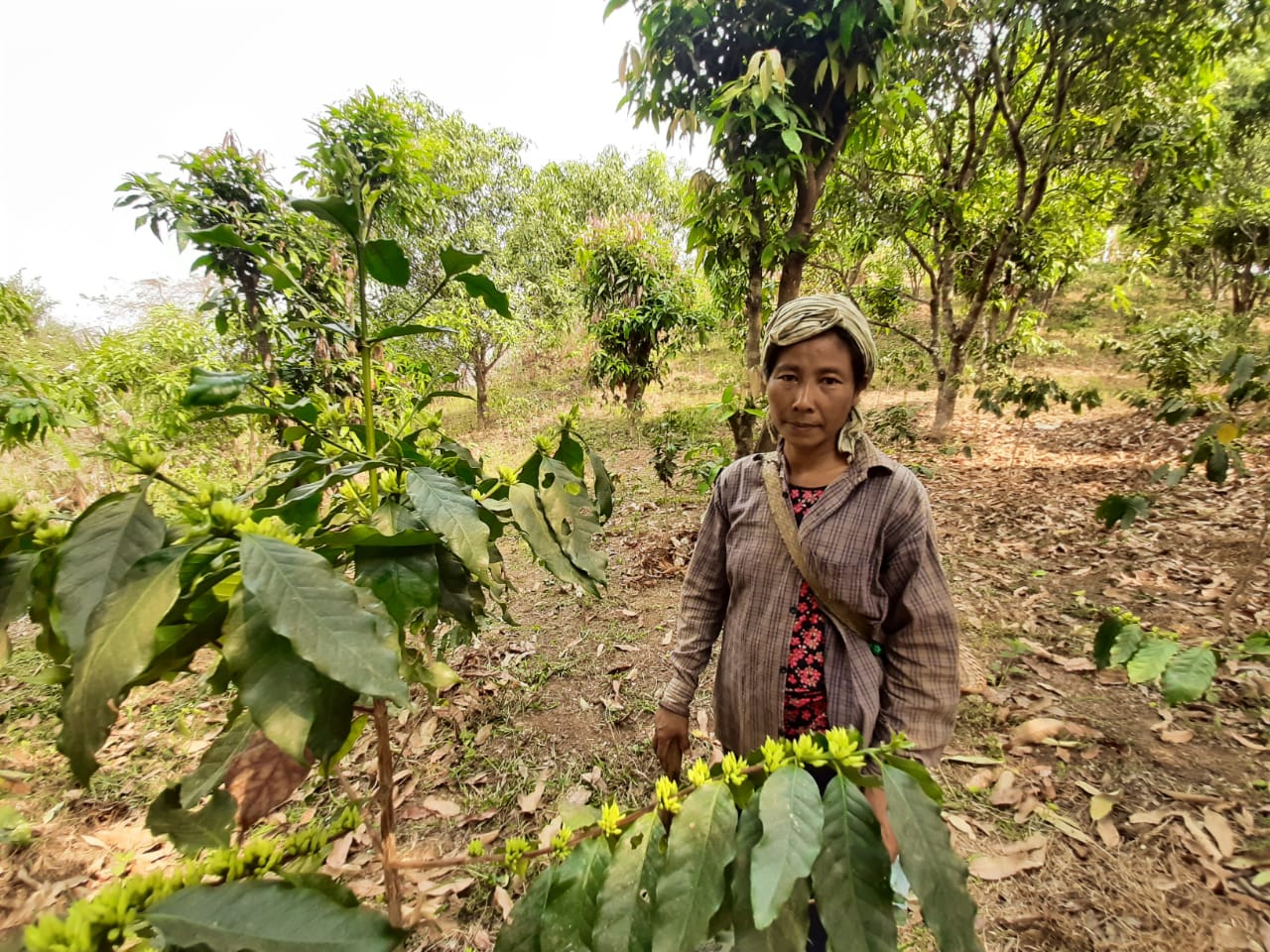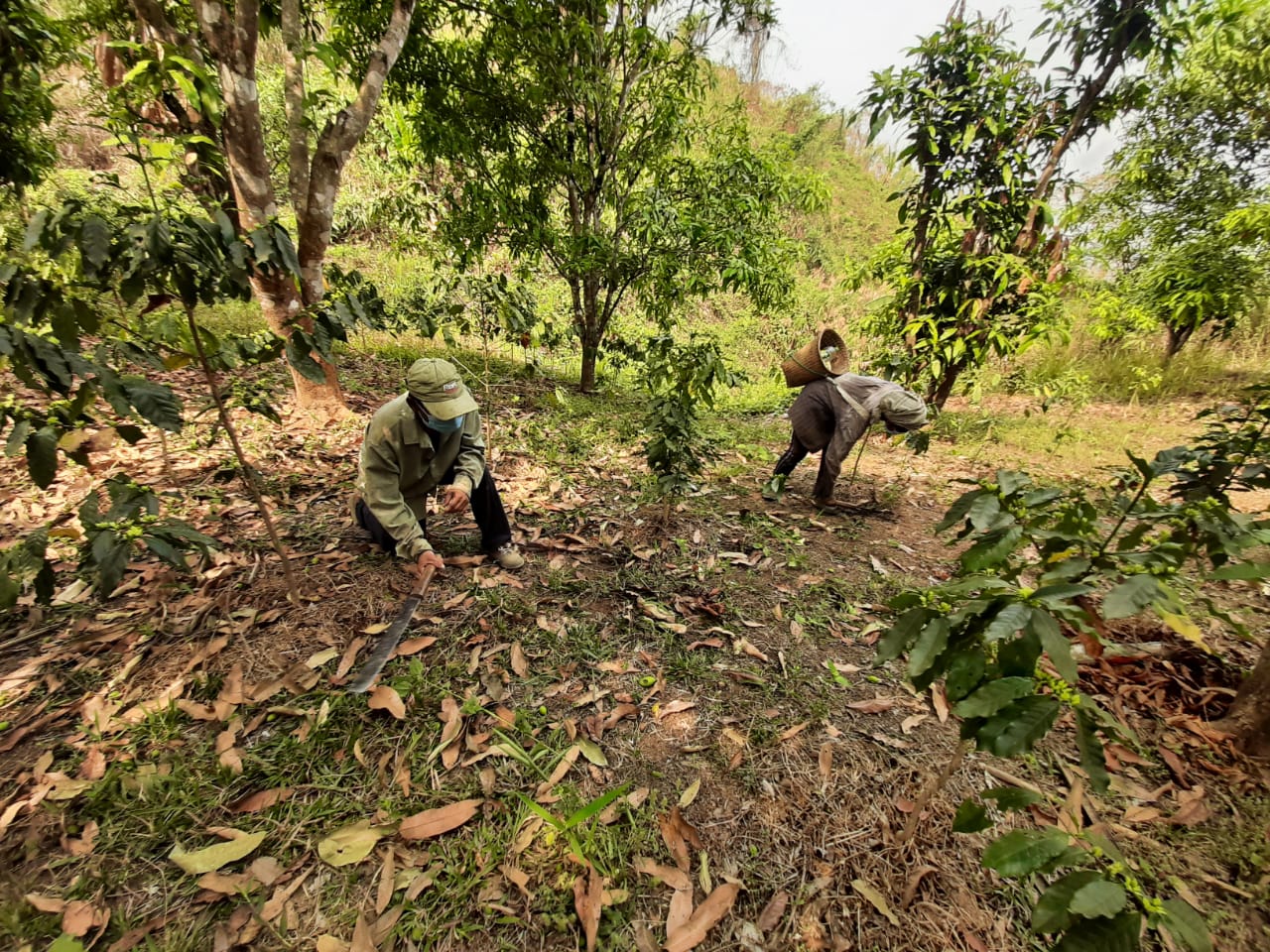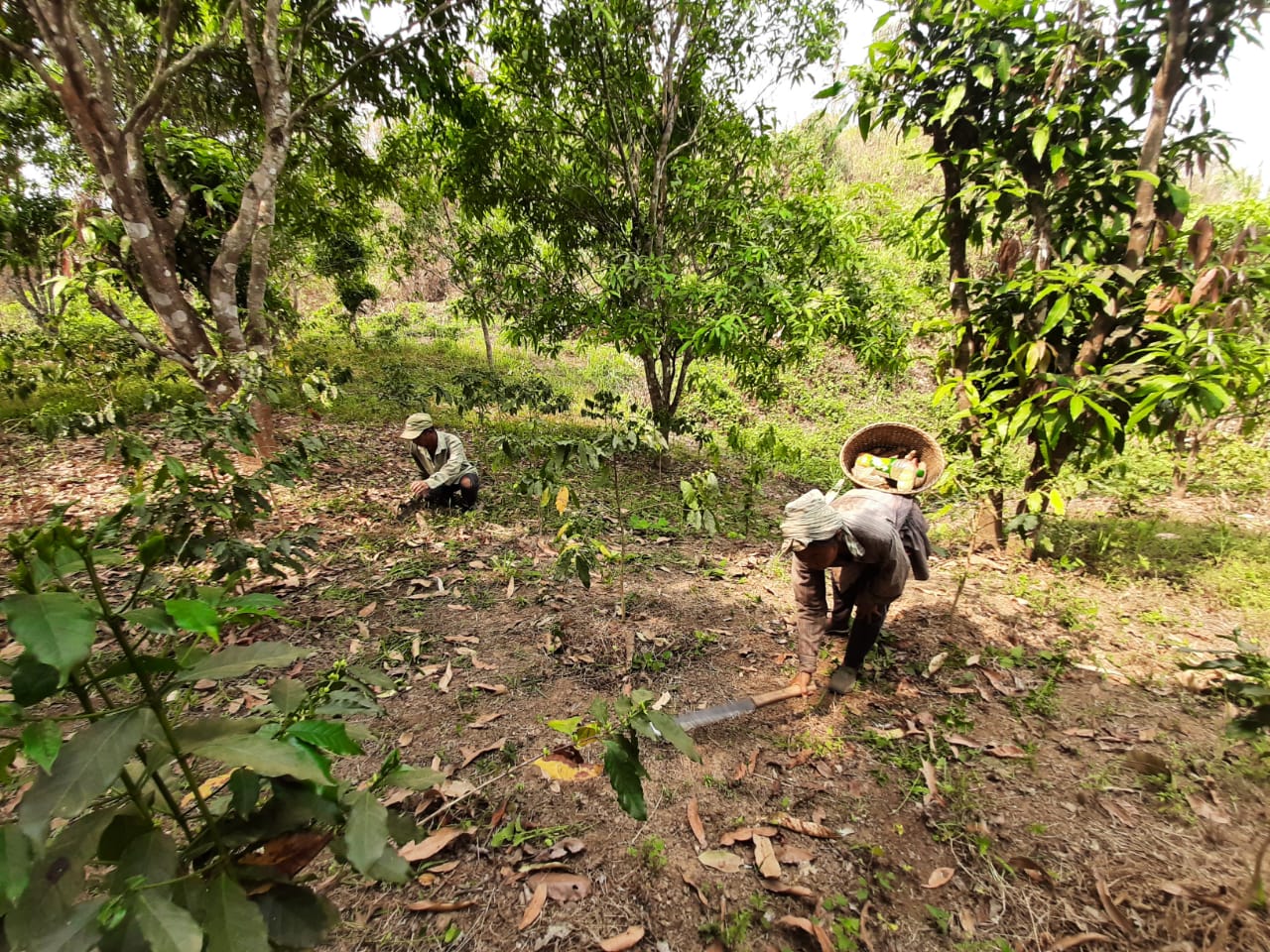Cultivating a Coffee Culture in Bangladesh
Zing Pian Bawm now grows coffee to earn money for her family
Nestled in Bangladesh’s hill tract region, the Bandarban district is one of the country’s hidden gems, featuring pristine and picturesque natural beauty. But due to its seclusion, residents in this area face challenges, and can’t always access essential services or markets where they can buy and sell produce.
Ms. Zing Pian Bawm from Happy Hill Para knows these struggles all too well. For most of her life, Zing Pian worked as a jhum farmer – an indigenous agriculture practice where farmers produce multiple crops on small plots of land throughout the mountainous terrain – and earned a meager income of approximately 50,000 Bangladesh taka ($595) for the entire year.

Helen Keller, in partnership with USAID, has worked in this region to create new income generating opportunities for women like Zing Pian. Participants engage in coffee production and grow other high-value crops while strengthening business skills and receiving training in improved production. The program links local producers to marketplaces to sell their produce, including turmeric, ginger, woven textiles, and now, coffee.
Developing business opportunities for families in Bandarban
Historically, coffee has been grown in Bandarban on a small scale. While farmers like Zing Pian often had experience growing coffee, it was usually only for personal or household consumption. When Zing Pian enrolled in homestead food production training in 2017, she learned about new and improved methods to produce vegetables to feed her family and sell the surplus for extra money. Seeing initial results of her training, she also joined a training to learn to grow coffee in order to sell it.
Coffee is a great fit for jhum farmers like Zing Pian. The crop is perfectly suited for hillside agricultural practices: coffee can easily be intercropped and sustainably produced, and the region’s climate, soil and elevated altitude are perfect for growing arabica coffee beans. Together, all this means that coffee can offer a diversified income source for poor farmers, providing them with the potential to reach a growing global market.

In August 2018, the program brought Zing Pian and five other top coffee producers from Bangladesh to Nepal to attend a four-day specialized coffee production training. There, they learned new techniques in propagation, nursery management, intercultural operations, and proper post-harvest handling of beans.
Upon her return, Zing Pian, trained 13 fellow coffee producers in her home village of Happy Hill Para, and another two dozen from surrounding areas in the technical aspects of production, including the proper distancing of seedlings, pruning, fertilizing, and post-harvest management.
In 2020, despite COVID-19 restrictions, Zing Pian nearly tripled her previous annual income.
In her efforts to share her knowledge with her peers, Zing Pian helped others improve their coffee production, along with her own, and has also established herself as a well-respected local resource on coffee, building her confidence and motivation to keep learning.
Now, coffee has become a key source of additional income for Zing Pian’s family. In 2020, despite COVID-19 restrictions, she nearly tripled her previous annual income.
Coffee empowers women to compete in the global marketplace
Coffee producers around the world, particularly women, tend to work strictly as day laborers. Their work consists of manual labor and they rarely have decision-making power over production or income. Zing Pian’s training, and her subsequent knowledge sharing has been vital for empowering her own and other coffee producers in taking ownership of all aspects of their production.
To date, we have empowered over 45,000 women through training in agricultural production, over half of them from ethnic minority groups like Zing Pian. These more than 200 indigenous coffee producers have honed their skills in coffee production and business – applying higher-yielding, climate-smart agricultural techniques, increasing income. The project has also introduced depulping equipment to help producers quickly shuck the coffee cherries and dry their beans, increasing the value of their beans, improving quality control, and boosting their prospects for higher sales volumes.

Now, these poor, female producers have the agency to set more favorable negotiation terms, manage income, and make decisions on their production operations on their own.
We partnered with North End Coffee Roasters, a highly successful coffee chain in Bangladesh, to create a market demand for smallholder farmers to sell their beans. North End is committed to collaborating with Helen Keller to improve livelihoods by improving coffee production and purchasing all coffee produced by Bandarban producers at a fair market price.
Helen Keller and USAID continue to foster nascent coffee producers like Zing Pian by equipping them with the skills and knowledge they need to harvest and sell their unique hill tract coffee beans.









